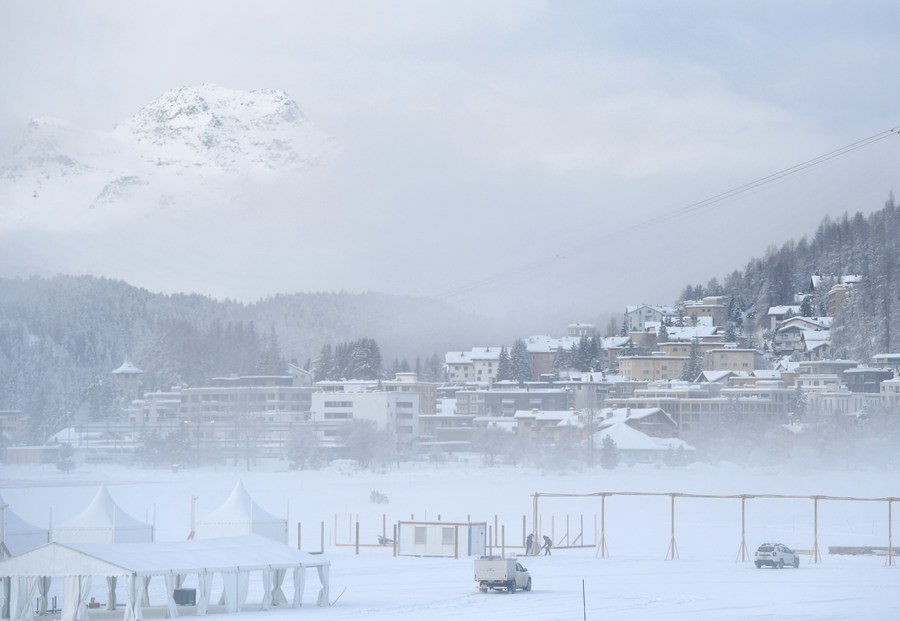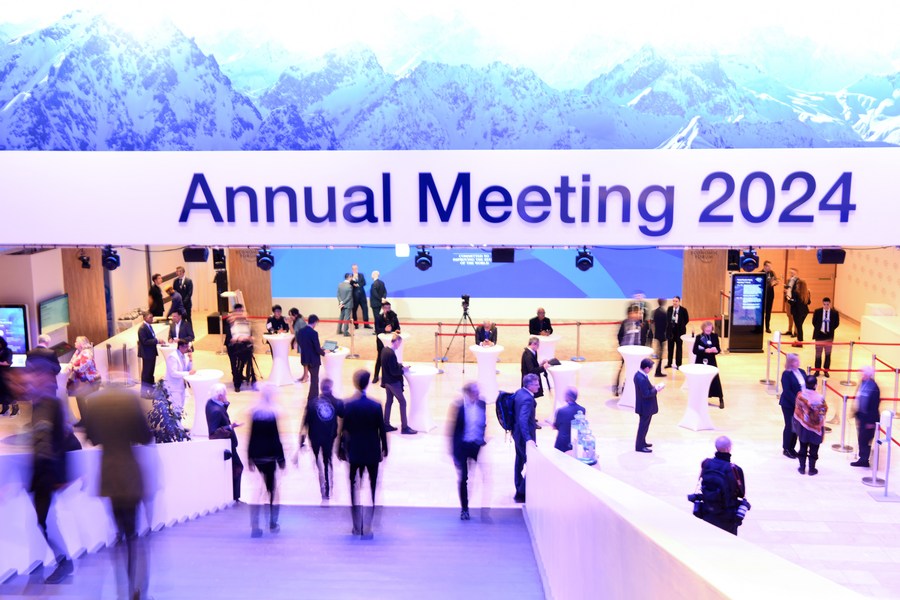
Global Economy Moving Towards “Non-Normality,” Says ECB President

This photo taken on the train from St. Moritz to Davos shows the snow scenery in Switzerland, Jan. 18, 2024. (Xinhua/Lian Yi)
Concerns Arise Over Weakening Consumption and Disrupted Global Trade
DAVOS, Switzerland, Jan. 19 (Xinhua) — Christine Lagarde, President of the European Central Bank (ECB), stated that the global economy is moving from the normalization observed at the end of last year to a new state of “non-normality.” Speaking at a panel discussion on the global economic outlook at the World Economic Forum (WEF) in Davos, Switzerland, Lagarde expressed concerns about weakening consumption, dwindling savings, and disrupted global trade amidst looming uncertainties.
Lagarde pointed out that there are indications that consumption, which is typically a driving force for growth, is not as strong as it used to be. She attributed this trend to dwindling savings in virtually all advanced economies, representing a drop from 10 percent to almost zero.

This photo taken on the train from St. Moritz to Davos shows the snow scenery in Switzerland, Jan. 18, 2024. (Xinhua/Lian Yi)
According to the latest Chief Economists Outlook released by the WEF, a majority of chief economists expect the global economy to weaken in 2024, with loosening labor markets and financial conditions anticipated. However, Lagarde noted that trade is starting to normalize, stating that global trade numbers were up for the first time in many months in October.
Inflation rates are also showing signs of normalization, apart from the euro area, as both headline inflation and core inflation are decreasing globally.
Germany Finance Minister Christian Lindner acknowledged the economic difficulties faced by his country after a period of strong growth. Germany’s economy contracted by 0.3 percent last year due to persistent inflation, high energy prices, and weak foreign demand. However, Lindner refuted claims that Germany is the sick man of Europe, stating that it is only “a tired man” in need of structural reforms.
Lindner emphasized the challenges posed by the rise of artificial intelligence and the threat of fragmentation in the global economy, stressing that the year 2023 was a “call for action.”

A photo from the World Economic Forum (WEF) Annual Meeting 2024 in Davos, Switzerland, Jan. 18, 2024. (Xinhua/Lian Yi)
Director-General of the World Trade Organization (WTO), Ngozi Okonjo-Iweala, expressed concerns about political developments in the Red Sea area, the Suez Canal, and the Panama Canal, all of which have suffered the effects of climate change. She mentioned that goods trade significantly dropped in 2023, leading the WTO to revise its forecast from 1.7 percent to 0.8 percent. However, a recovery in trade was observed in the last quarter of 2023, particularly in automobiles, components, and parts.
Okonjo-Iweala highlighted that although there are signs of normalization, trade growth still lags behind GDP growth. She emphasized the difficulty in making accurate forecasts due to looming uncertainties. However, she expressed optimism that 2024 will be better than 2023, unless a major war breaks out, which would jeopardize any predictions.

A photo from the World Economic Forum (WEF) Annual Meeting 2024 in Davos, Switzerland, Jan. 15, 2024. (Xinhua/Lian Yi)
Tharman Shanmugaratnam, President of Singapore, identified the gradual changes that pose fundamental threats as the biggest challenges to resilience. These include the shift in the global ecological balance, the unpreparedness for aging societies, and the growing polarization.
In his concluding remarks, WEF President Borge Brende emphasized the necessity of global cooperation in tackling these challenges. He stated that although the times are uncertain and challenging, shaping a more resilient, sustainable, and equitable future is only possible through collective efforts.
The five-day WEF annual meeting, titled “Rebuilding Trust,” focused on four priorities: achieving security and cooperation in a fractured world, creating growth and jobs for a new era, harnessing artificial intelligence as an economic and societal driving force, and formulating a long-term strategy for climate, nature, and energy.
(Web editor: Xue Yanyan, Hongyu)